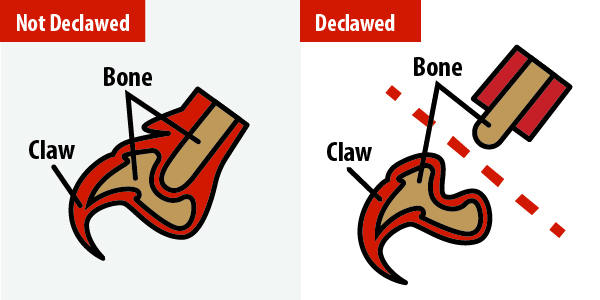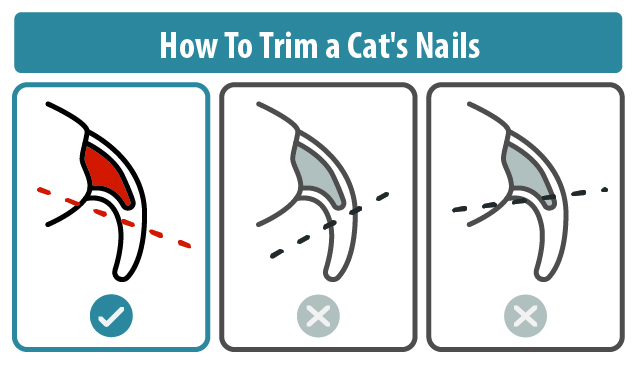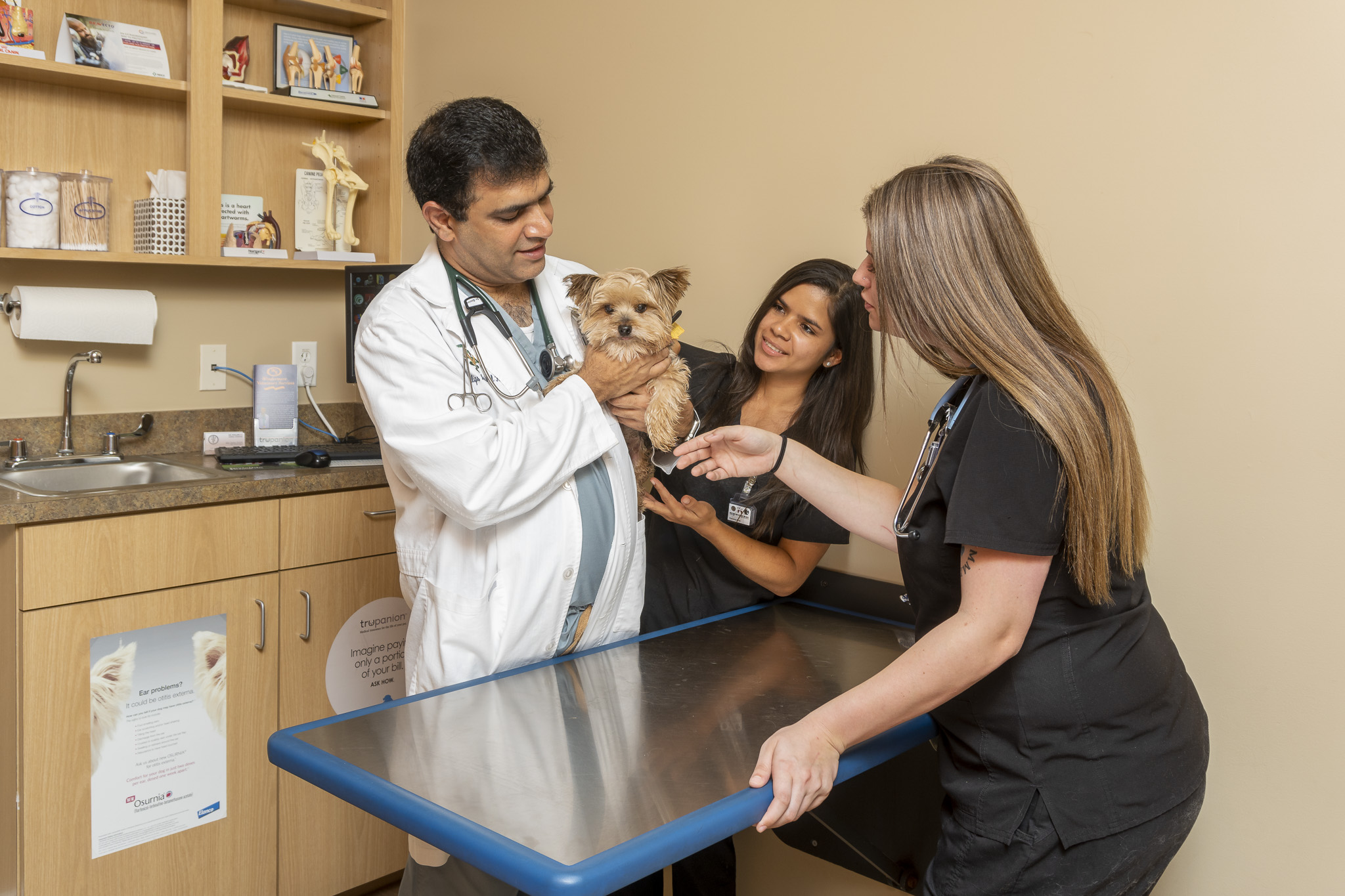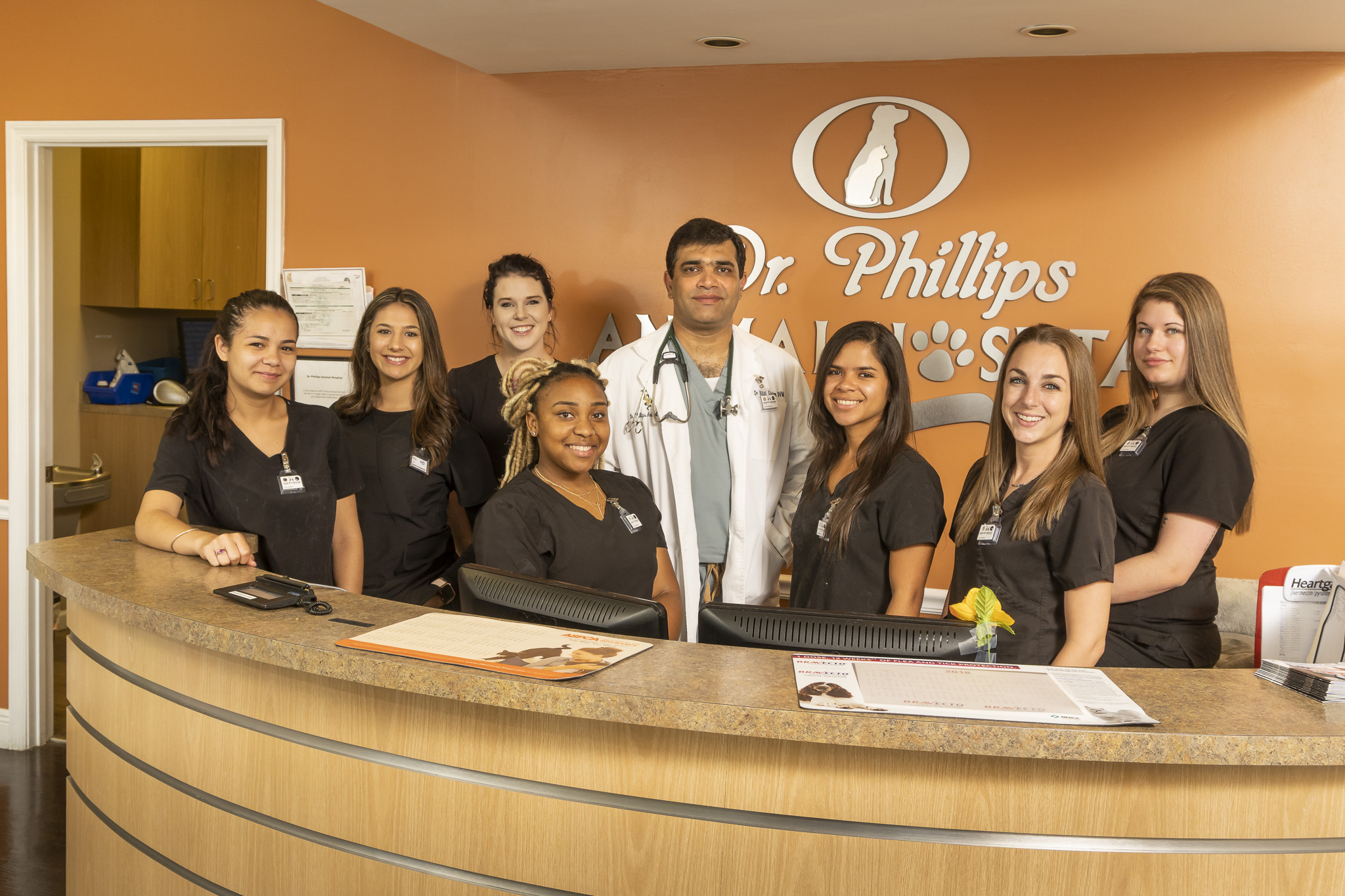At Dr. Phillips Animal Hospital, we understand that your cat’s health and happiness are your top priorities—and they’re ours too. One of the most frequently discussed procedures in veterinary medicine is cat declawing, and it’s a topic that deserves careful consideration. While declawing is not recommended as a first option due to its impact on a cat’s well-being, we recognize that in rare and specific circumstances, it may be a necessary course of action to ensure the safety and comfort of both the cat and their human family.
Our approach is rooted in providing compassionate care, prioritizing alternatives wherever possible, and, when declawing is unavoidable, offering safe, effective, and affordable solutions.
Why Declawing Is Not Our First Recommendation
Declawing, or onychectomy, is a surgical procedure that involves removing the last bone of each toe on a cat’s paws. This is not a minor procedure—it permanently alters the way a cat’s paws function, which can lead to complications such as pain, behavioral changes, or difficulty walking. Because of these risks, organizations like the American Veterinary Medical Association (AVMA) and many animal welfare groups strongly advocate for exploring alternatives before considering declawing.

Alternatives to Declawing
We always encourage cat owners to consider alternative methods to manage unwanted scratching. These include:
Scratching Posts & Toys
Providing scratching posts and toys gives cats appropriate outlets for their natural scratching instincts. Position posts in key areas of the home (particularly at favored scratching spots) and choose a variety of textures, like sisal, carpet, or wood, to keep your cat engaged. Interactive toys can also divert attention from furniture while encouraging exercise and mental stimulation.
Tip
Sprinkle catnip or attach toys to scratching posts to make them more enticing for your cat.
Cat Houses or Trees
Cat trees or houses serve as multifunctional spaces for scratching, climbing, and lounging. These structures provide enrichment while helping cats mark territory and exercise their muscles. Placing a cat tree in a high-traffic area can make it a preferred alternative to your furniture.
Tip
Place a cat tree near a window to create a stimulating spot for climbing, scratching, and watching the outside world.
Training
Training your cat to use scratching posts or other designated items involves positive reinforcement, patience, and consistency. Reward your cat with treats or praise when they use acceptable surfaces, and gently redirect them from inappropriate scratching. Over time, this creates healthy habits and reduces unwanted behavior.
Tip
Consistency is key—redirect your cat to a scratching post every time they scratch inappropriate surfaces.
Frequent Nail Clipping
Regular nail trimming minimizes damage from scratching and helps maintain your cat’s comfort. Start with short, frequent sessions to accustom your cat to the process, using high-quality clippers designed for cats. Clipping prevents overly sharp nails that can snag or harm surfaces.
Tip
Trim your cat’s nails after playtime or a meal, when they’re naturally more relaxed.

Nail Caps (or Soft Claws)
Nail caps are soft, plastic covers glued over your cat’s claws to reduce the impact of scratching. These are a safe, humane option that protects furniture and people while allowing cats to stretch and scratch normally. Caps typically need to be replaced every four to six weeks.
Tip
If your cat resists nail caps, start by applying them to just one paw to help them adjust gradually.

Synthetic Pheromone Diffusers or Sprays
Synthetic pheromones mimic natural calming signals, helping reduce stress and unwanted scratching behaviors. Diffusers or sprays can be used in areas where your cat tends to scratch inappropriately, encouraging relaxation and promoting the use of designated scratching surfaces.
Tip
Use synthetic pheromones near high-stress areas, like new furniture or multi-cat households, to encourage calm behavior.
Why Do People Get Their Cats Declawed?
Declawing is generally not recommended unless there isn’t another option. If your cat is just scratching the furniture, for example, your vet will recommend alternatives, such as training or scratching posts. There are some circumstances in which declawing may be necessary, however.
Medical Necessity
Declawing may be necessary in cases of chronic infections, tumors, or severe injuries affecting the claws. These conditions can make other treatments ineffective, and removing the claws may be the best way to alleviate pain and improve the cat’s quality of life.
Household Safety Concerns
For families with vulnerable members, such as immunocompromised individuals, those with bleeding disorders, or young children, declawing might be considered to prevent injuries or health complications from scratches.
Behavioral or Lifestyle Issues
Severe, unmanageable scratching that damages furniture or poses risks to sensitive skin conditions may lead some owners to consider declawing if all other solutions fail.
Legal or Housing Requirements
Occasionally, declawing may be considered due to housing rules that require it or when it’s the only way to keep a cat in its home, though this is increasingly rare and discouraged.
What Is Declawing?
Declawing, or onychectomy, is a surgical procedure that involves the removal of the claws from a cat’s paws. Unlike trimming nails or applying nail caps, declawing is a permanent operation that goes beyond the claw itself. A cat’s claw is not just a hardened nail—it is attached to a bone at the end of each toe. Declawing involves the amputation of the last bone in each toe to fully remove the claw and prevent it from regrowing. This is comparable to removing the last knuckle of a human finger.
The Declawing Process
At Dr. Phillips Animal Hospital, we understand that declawing your cat is a significant and emotional decision. While we strongly advocate for alternatives, we are committed to providing the safest and most compassionate care if declawing is deemed necessary. Here’s an overview of what the procedure entails and the steps we take to ensure your cat’s comfort and well-being throughout the process.
Blade Declawing
Here at Dr. Phillips Animal Hospital, we use the blade declawing technique, which involves the careful removal of the last bone in each toe using a sterile surgical blade. This method allows for precise removal of the claw and surrounding tissue while minimizing damage to the surrounding area. It is considered one of the more meticulous techniques for declawing, ensuring cleaner cuts and reducing the risk of complications compared to older methods.
The Declawing Procedure
During the surgery, your cat will be placed under general anesthesia to ensure they remain pain-free and comfortable. Using a sterile surgical blade, our veterinarian carefully removes the claw and the last bone of each toe. The incision is closed with surgical glue or sutures, depending on the cat’s needs. Once the procedure is complete, your cat will be closely monitored as they recover from anesthesia.
Pain Management and Comfort
We prioritize your cat’s comfort throughout the entire process. Before and after the procedure, we administer advanced pain management techniques, including local anesthetics and post-operative pain medications. These measures are designed to minimize pain and ensure a smooth recovery. Our team monitors your cat’s pain levels closely during their stay with us.
Post-Operative Care and Recovery
Following the procedure, your cat will be kept in a clean and stress-free environment to recover under our supervision. We provide detailed at-home care instructions, including how to manage your cat’s activity, keep their paws clean, and recognize signs of complications. Scheduled follow-up visits ensure your cat’s recovery is progressing as expected, and our team is available to answer any questions or concerns during the healing process.
Why Choose Our Declaw Services
While declawing should always be a last resort, we are here to support you if this option is necessary. With our focus on safety, compassionate care, and transparent communication, you can trust that your cat will be in experienced hands every step of the way. If you have questions about the procedure or would like to explore alternative solutions, our team is here to guide you.
Contact us to schedule a consultation and discuss the best approach for your cat’s needs.









